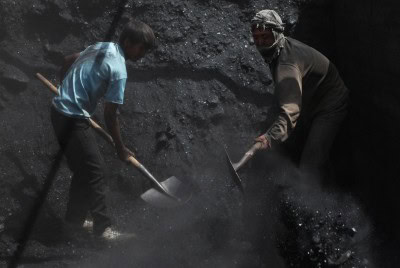Panaji, Jan 19 : Nothing succeeds like success.
The Goa government’s decision to relent and finally announce the relocation the IIT-Goa campus from Melaulim village in North Goa, amid opposition from local villagers, may well serve as a template for popular opposition to three other central government projects, which have been in the crosshairs of the environmentalists and the political opposition, as well as some ruling Bharatiya Janata Party legislators.
According to Abhijeet Prabhudesai, co-convenor of Goyant Kolso Naka (No Coal in Goa) movement, the spirited protest of the villagers, who stood up to the might of the Goa government and forced the latter to relocate the proposed IIT campus site from their village, provides lessons for environmentalists.
“The message from Melaulim is clear. People’s power is greater than the people in power. We hope that the government wakes up to this realisation,” Prabhudesai told IANS.
For several months now, the IIT-Goa campus project had been the bone of contention between Chief Minister Pramod Sawant and Health Minister Vishwajit Rane (local MLA) on the one side and the villagers of Melaulim on the other. The latter had accused the government of trying to drive them from their ancestral lands to make way for the proposed campus which was estimated to spread over 10 lakh sq. mts.
The government was forced to backtrack from the project, after the protests turned violent earlier this month and in wake of the support which the protesting villagers received from the Opposition as well as civil society groups across Goa.
According to Prabhudesai, the villagers got their act right by arming themselves with all the information available about the project and then standing in unison to back their demand.
“They did everything right from the very start. They got themselves informed of all aspects of the project. They empowered themselves with the knowledge and united themselves. Their unity was their biggest strength so was their determination and faith that truth will triumph,” Prabhudesai said.
Prabhudesai is currently spearheading protests against three central government projects linked to double tracking of the South Western railway line, the expansion of the National Highway 4A and an interstate power transmission project. All the projects are earmarked in protected areas, especially in and around Mollem village, which is ringed by the Bhagwan Mahavir Wildlife Sanctuary and National Park.
Environment activists, the Opposition as well as several ruling Bharatiya Janata Party have claimed that the government was trying to deforest forest land for facilitating coal transportation. Nearly 50,000 trees are estimated to be cut to make way for the three projects, they have also claimed.
The protests have stretched into several months now, cutting through the Covid-19 pandemic and has led to several flash-points between the government and the protestors. On Tuesday, a Supreme Court-appointed central empowered committee has also arrived in Goa to examine the claims made by the groups which have opposed the projects.
According to Prabhudesai, their movement against the three projects, which he says are intended to convert Goa into a “coal transportation hub”, would seek inspiration from the success of the protesting villagers of Melaulim.
“The people will take encouragement and inspiration from the Melaulim struggle,” he said.
Prabhudesai is not the only one thinking on such lines. “May each of us in our village rise above our greed and become sensitive to our environment in which our existence depends,” activist Judith Almeida said.
Disclaimer: This story is auto-generated from IANS service.

